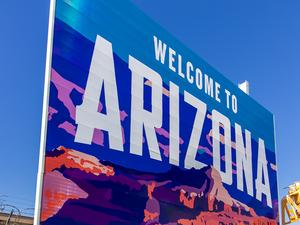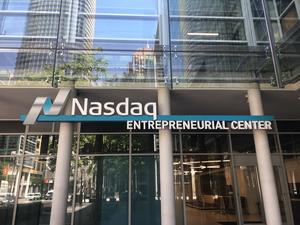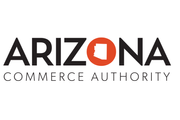
Phoenix is the world’s 20th-ranked emerging startup ecosystem — the seventh-highest North American ranking — according to an annual global report by Startup Genome.
The report from the innovation policy advisory and research firm also found that Phoenix has led the way in the U.S. among emerging startup ecosystems producing new billion-dollar companies. Four unicorn startups emerged in the Valley in the past decade, the report showed.
While somewhat arbitrary in nature, having a startup with a billion-dollar valuation can be a game changer for a metro area, according to JF Gauthier, founder and CEO of Startup Genome.
Gauthier said the number of unicorns emerging over the past year is one of the most surprising trends in the report. At least 540 companies secured valuations of $1 billion or more in 2021. In the Valley, that has included Scottsdale companies Lessen and HomeLight Inc.
"Once you have a unicorn in your city, suddenly the ceiling is lifted and the definition of success changes," he said. "People say 'We can do it here. We can build a $5 billion company.' And that changes a lot."
Hyper-growth companies tend to churn out new founders and additional talent with experience in scaling a tech company at a rapid pace. They know how to reach international markets, raise bigger rounds of capital, expand operations and so on, he said.
"At one point they leave, there's an exit and it releases that great talent," he said. "This is a big deal when you have a first unicorn and it allows you to create several more a few years later."
The report also ranked Phoenix as one of the world’s top emerging ecosystems by total early-stage funding, defined as total seed and series A fundings in the first half of 2019, 2020 and 2021. Phoenix’s $742.4 million was seventh-highest in the world, and North Carolina’s Research Triangle at ninth-highest was the only other North American locale to make the top 10.
Separately, Arizona set a new record in 2021 for total venture capital funding of $1.89 billion, according to Pitchbook-NVCA data.
Market investment swings
The news comes as the U.S. confronts another economic downturn. The dynamics have already made it harder for startups to raise funding. But these market corrections come after years of astounding growth in the number of startups in Phoenix and other areas.
The new Startup Genome report largely reflects the massive growth seen between 2020 and 2021, and not necessarily the undulating markets experienced in the U.S. over the past couple of months. It notes that inflated valuations have boosted overall numbers, but that they can carry risks for startups.
"It often spells lower returns for investors for the affected vintage investments. For startups (and for investors) this raises the specter of down rounds as the market goes back to near-historical valuations before their next round," it says.
While limited on these recent changes, the report paints a vivid picture of how startups largely succeeded, landing record funding dollars and skyrocketing valuations, over the course of the Covid-19 pandemic.
"Since the pandemic, tech companies grew 2.3 times more than their non-tech counterparts," the report said. "While about 90% of startups completely fail, Startup Genome research demonstrates that only 1.5% of startups — or about 15% of those that survive — produce a successful exit of $50 million or more across the top eight U.S. startup ecosystems."
The growth over the past year has benefited companies at all stages. The average series A deal, for example, climbed to more than $18 million, a 239% increase from a decade ago. Since 2019, post-money valuations have climbed 125% for series B rounds.
Fundraising accelerates
Startup fundraising has been accelerating almost everywhere, with VC funding growing to $87.4 billion in Asia, $219.6 billion in North America and $12.9 billion in Latin America.
In the U.S., several metro areas have bolstered their startup ecosystems. Detroit ranked No. 1 among emerging startup hubs, with Minneapolis and Houston also cracking the top five.
Among big cities, Silicon Valley led the pack, which is not all that surprising, despite some companies leaving the Bay Area in search of lower costs of living or going fully remote following two years of pandemic-related office disruptions. But the trend is that more cities are attracting and retaining larger shares of tech talent.
For decades, Silicon Valley had an outsized share of talent, investment and attention in the tech world. That, Gauthier said, is changing quickly.
"Silicon Valley has no monopoly, no dominance on that," he said.
Gauthier expects growth to continue, even though it will be impacted by inflation and other factors: "I think this is a very long-term trend, and we're not in the middle of it. I think maybe at the end of the beginning, with tech becoming one of the main economic drivers all over the world."
Every time there's a crash, we think maybe it's an end of an era, he said.
"But the fact is we are transitioning to a digital economy, and there's a lot of industries that are yet to convert," Gauthier said. "And that's what's ongoing right now with deep tech where new technical skills, new technical innovation is finally changing those older industries. It's going to continue for a few decades."
New US hubs emerging
The pandemic accelerated the shift to new hubs, according to Startup Genome.
"By rendering talent and capital more fluid, technology has paradoxically made geography more important than ever," the report says. "Now that founders, talent, and investors can be anywhere, polestars like Silicon Valley, London, and Beijing must compete with hundreds of expanding constellations, each with its own legal, economic, and lifestyle advantages."
The biggest change in the Startup Genome's rankings this year is with Beijing. It dropped from No. 4 to No. 5, with Boston rising to take its place. New York and London tied for No. 2, where they have ranked since 2020.
Startup Genome blames China's drop on "the relative decline in early-stage funding in comparison to other ecosystems."
Los Angeles is No. 6, followed by Tel Aviv No. 7 and Israel at No. 8. Seattle moved up to No. 9, replacing Tokyo which dropped all the way to No. 12.
Other key findings in the Startup Genome report include:
- Covid-19 boosted the startup sector by accelerating digitization. "Since the pandemic, tech companies grew 2.3 times more than their non-tech counterparts."
- Success vs. failure: "While about 90% of startups completely fail, Startup Genome research demonstrates that only 1.5% of startups — or about 15% of those that survive — produce a successful exit of $50 million or more across the top eight U.S. startup ecosystems."
- Tech vs. non-tech: Tech companies around the world grew by 2.3 times more than non-tech companies during the pandemic.
- Spector of down rounds: Rising interest rates and the war in Ukraine has put a stop to 2021’s exuberance, Startup Genome writes. "In this context, startups will benefit from adopting adjusting their growth strategy by reducing their burn in order to lengthen their runway and delay their need for capital, and do so rapidly and assertively," it advises.
Brent Wistrom of Austin Inno and Cromwell Schubarth of Bay Area Inno contributed to this report.











